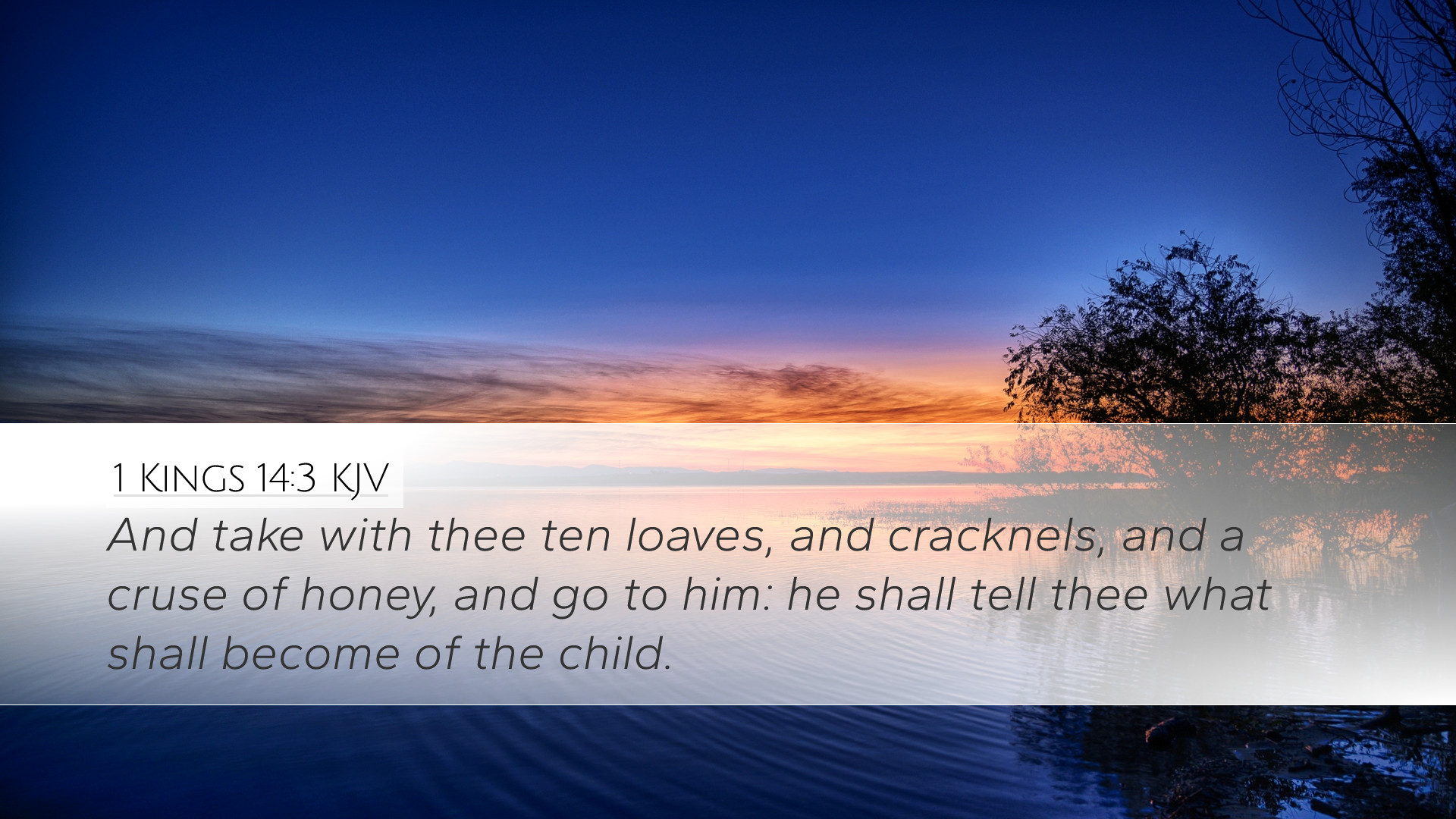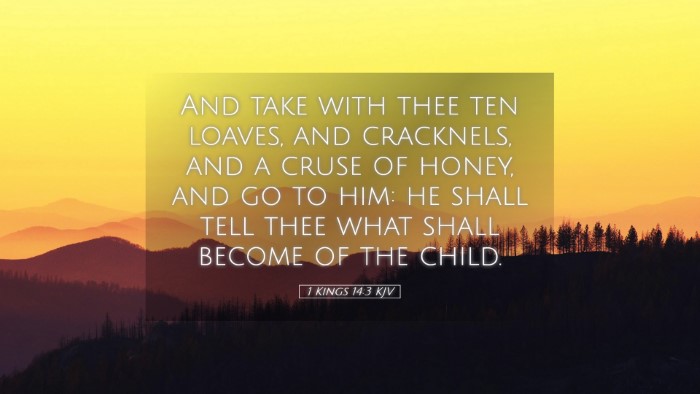Commentary on 1 Kings 14:3
Verse Reference: 1 Kings 14:3 - "And take with thee ten loaves, and cracknels, and a cruse of honey, and go to him: he shall tell thee what shall become of the child."
Contextual Background
The backdrop of 1 Kings 14 presents a significant moment in the Israelite monarchy, particularly during the reign of Jeroboam, the first king of the northern kingdom of Israel. Jeroboam's rule was marked by a deviation from the worship of Yahweh, leading to spiritual decline and idolatrous practices among the Israelites. This passage indicates a pivotal interaction between the human condition and divine revelation, embodied in the child’s illness and the subsequent visit of Jeroboam's wife to the prophet Ahijah.
Analysis of the Components
-
Divine Consultation:
In this verse, the command given to Jeroboam's wife to seek counsel from the prophet indicates a recognition that spiritual authority lies with God’s prophets. Matthew Henry notes that seeking divine guidance reflects a deeper understanding of one’s dependence on God, even in times of distress.
-
The Offering:
The specific items to be brought - "ten loaves," "cracknels," and "a cruse of honey" - carry both practical and symbolic significance. Albert Barnes observes that these items are simple fare, reflecting humility and perhaps an acknowledgment of God’s providence. They contrast with the excesses often associated with royalty and emphasize the need for sincerity in approaching God.
-
The Prophet's Role:
Ahijah’s role as a channel of divine revelation is crucial. Adam Clarke points out that his ability to discern the situation without seeing the wife of Jeroboam exhibits the compelling power of prophetic insight. It illustrates that God's knowledge surpasses human limitations and that divine will is paramount in understanding the future.
Theological Implications
1. God’s Sovereignty: This scripture illustrates God’s control over human affairs. As Henry comments, “God sees everything, and whatever things are done in secret, the Lord will reveal.” This speaks to the omniscience of God, which is a fundamental tenet of Christian theology.
2. Human Agency and Divine Instruction: The act of Jeroboam’s wife seeking out the prophet represents a complex interplay between human initiative and divine guidance. This is a recurring theme in Scripture, where human actions have ramifications that intertwine with divine providence.
Practical Applications
-
Seeking God:
This passage encourages believers to seek God’s counsel in times of trouble, suggesting a posture of humility and dependence on divine wisdom.
-
Symbolism of Offerings:
The willingness to bring offerings, even simple ones, reminds modern Christians of the importance of sincerity in their worship and the value of approaching God with a humble heart.
-
Listening to Prophetic Voices:
In today’s context, the role of the prophet can be seen as the Church and its leaders who guide congregants in times of uncertainty. The emphasis here is on the necessity of heeding spiritual wisdom that aligns with God’s Word.
Conclusion
1 Kings 14:3 serves as a multifaceted scripture that combines themes of divine divination, humility, and the essential seeking of God's voice amidst crises. The insights drawn from public domain commentaries enrich our understanding of this passage, making it relevant for contemporary faith practices. It challenges pastors, theologians, and students to examine their own reliance on God and the significance of seeking His counsel in all aspects of life.


